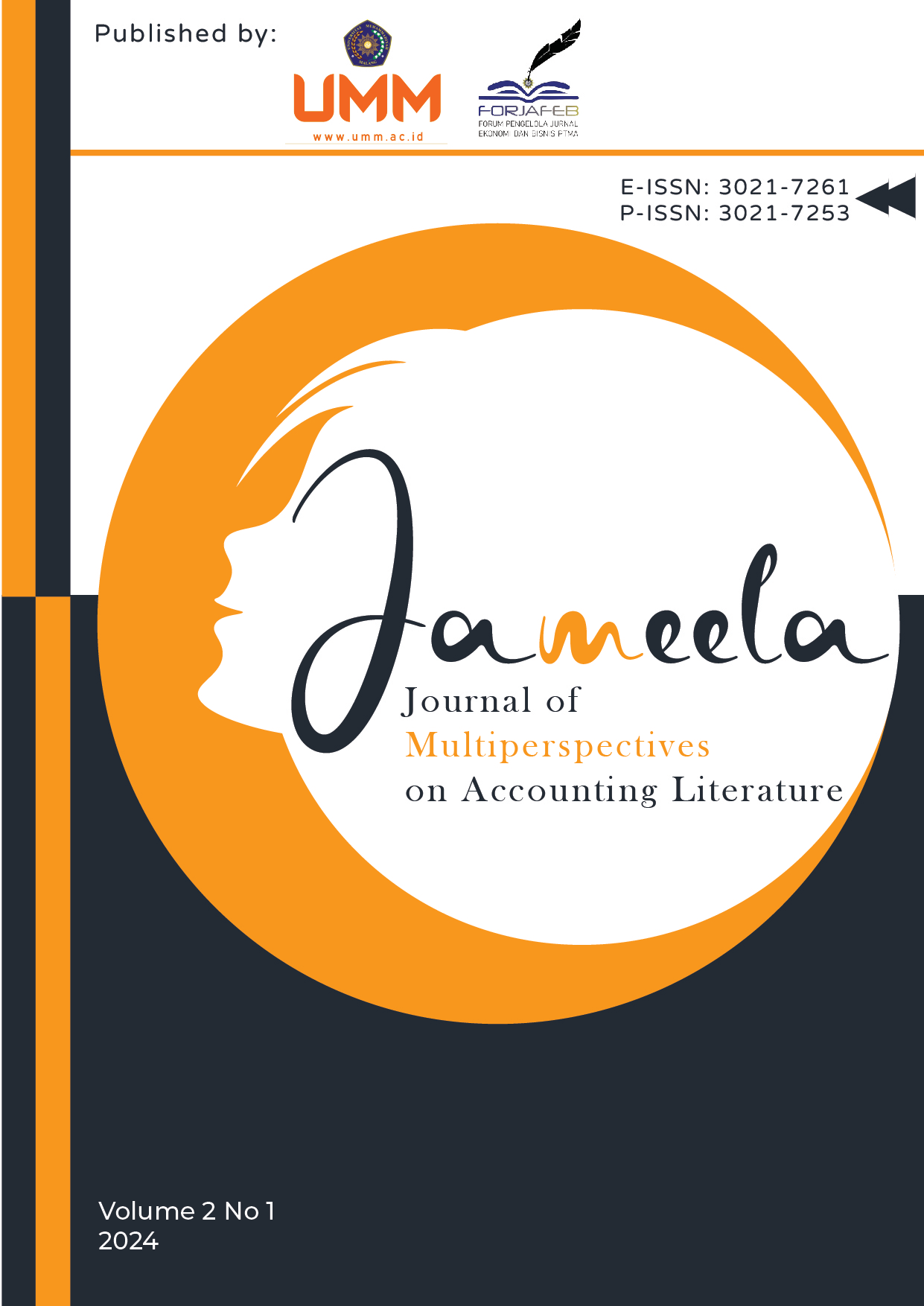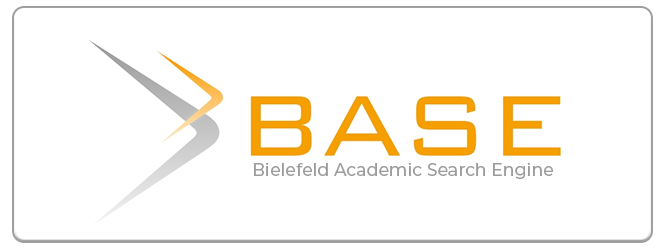Self-assessment regime, tax compliance, and tax administration: Evidence from emerging economy
DOI:
https://doi.org/10.22219/jameela.v2i1.30692Keywords:
Fiscal Governance Quality, Tax Compliance, Tax KnowledgeAbstract
Purpose: This study examined the effect of self-assessment regime and tax compliance on tax administration in Nigeria. The specific objective was to find out the effect fiscal governance quality tax-payers knowledge (TKW), filling of tax returns (FTR), financial constraints (FCT), ability to pay tax without being compelled (PAC).
Methodology/approach: The study adopted the survey research design This is because the objective of the study is to systematically obtain information to describe how self-assessment endues tax compliance and tax administration. The population of this study is the 96 conventional Federal Inland Revenue Tax offices and all corporate taxpayers in Nigeria. The study utilized the purposive sampling technique considering responses from our respondents, fifteen conventional federal inland revenue tax offices and twenty-five corporate taxpayers were chosen for the study. One hundred and two respondents out of which forty-five were from conventional Federal Inland revenue tax office and fifty-seven responses from corporate taxpayers. The source of data is primary and five-point Likert scale questionnaires were designed to generate responses from respondents. Out of a total number of 750 questionnaires sent out through Google, only 252 were returned. The study made use of inferential and descriptive statistics to analyze the responses with the aid of SPSS.
Findings: The finding indicated that there is a significant association between tax knowledge and ability to pay tax without being forced and governance quality, but filling of tax return and financial constraint have negative effect on governance quality. The study concluded that the association between self-assessment regime and tax compliance and tax administration in Nigeria is significant and the study recommended that loopholes from where tax revenue is lost should be covered to increase tax revenue in Nigeria.
Practical Implication: The research finding has an effect on tax policy makers and taxpayers in Nigeria
Originality/Value: this study is having modified the existing variables used by previous and introduced new ones as it introduced financial constraint and ability to pay tax as a measure of tax compliance.
Downloads
Downloads
Published
How to Cite
Issue
Section
License
Copyright (c) 2024 Joseph Madugba, Ben-caleb, Egbide, Uzoka, Nonye. D, Oparah Vivian I., Onuoha, Chinagorom, Godwin, Mmerenini, Agbiogwu, Andrew, Dokia James

This work is licensed under a Creative Commons Attribution-NonCommercial-ShareAlike 4.0 International License.






























